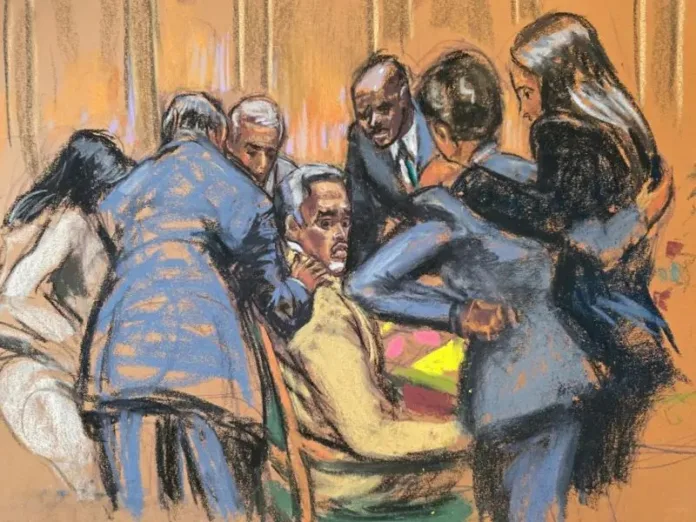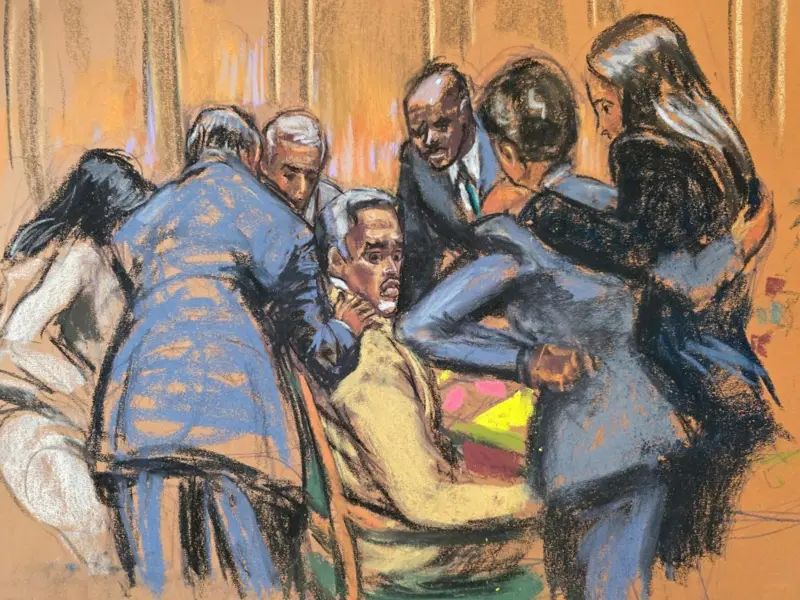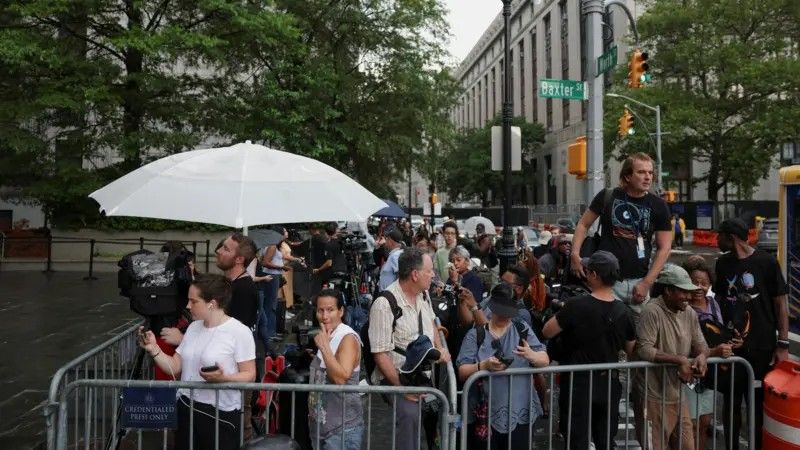
|
Getting your Trinity Audio player ready...
|
NEW YORK — Sean “Diddy” Combs will remain behind bars following a judge’s decision to deny bail on Tuesday, despite being acquitted of the most serious charges in his federal trial. The music mogul now awaits sentencing on October 3 after being found guilty of two counts of transportation to engage in prostitution.
The Verdict: Partial Victory, Lingering Consequences
After an intense eight-week trial that included testimony from 34 witnesses — including ex-partners Cassie Ventura and a woman identified as “Jane” — Diddy was cleared of racketeering and sex trafficking, charges that could have landed him in prison for life. However, the guilty verdict on two lesser but still serious counts under the Mann Act ensures he faces prison time — up to 20 years.
Judge Arun Subramanian denied Diddy’s bail, citing concerns over his history of violence and referencing a 2016 surveillance video showing him assaulting Ventura in a hotel hallway. “The defense conceded violence in his personal relationship,” the judge noted, ultimately deciding that Diddy posed too great a risk to be released ahead of sentencing.

Inside the Courtroom: A Tense Day Ends in Gasps
Combs, stoic as the verdict was read, had been seen praying with his children prior to the hearing. Supporters outside the courthouse — many expecting a triumphant release — were left stunned when news of the bail denial broke. Gasps echoed through the courtroom’s overflow room.
His legal team argued that Combs was not a flight risk, had shown good behavior in jail, and even attended a domestic violence program prior to his arrest. They claimed the prosecution’s case was overblown and riddled with inconsistencies. But prosecutors pushed back, describing Combs as “extremely violent” and “brazen,” with a troubling pattern of abuse and entitlement.
What Is the Mann Act — And Why It Matters
The Mann Act, a 115-year-old federal law originally created to combat human trafficking, prohibits transporting individuals across state lines for “immoral purposes,” including prostitution. While its language is considered outdated, it was this statute that led to Combs’ conviction.
Legal experts say the lack of a coercion requirement under the Mann Act made it easier for prosecutors to secure a conviction. Jennifer Beidel, a former federal prosecutor, noted that Combs’ conviction under this act was enough to justify mandatory detention — even as he was cleared of the more complex sex trafficking charges.

Sentencing Outlook: What Time Could Diddy Serve?
While the two counts each carry a maximum 10-year sentence, it’s unlikely Combs will serve the full 20 years. Judges often run sentences concurrently unless aggravating circumstances exist. Factoring in time already served since September 2024, and potential “good time” credits, legal analysts estimate a sentence of around two years — though the final decision rests solely with the judge.
Still Facing a Legal Firestorm
Though the criminal trial has concluded, Diddy’s legal troubles are far from over. More than 150 individuals have filed civil lawsuits against him, represented by Houston-based attorney Tony Buzbee. The suits allege drugging, assault, and misconduct dating back decades. These civil cases may not carry prison time, but they could have significant financial and reputational consequences.
Diddy’s Legacy on the Line
Once one of the most influential names in hip-hop, Sean Combs’ career is now under a cloud of scandal. His legal team described the partial acquittal as a victory, but the weight of his convictions and the continuing legal battle have cast a long shadow on his public image and business empire.
With sentencing set for October 3, all eyes will remain on the Brooklyn courthouse. Until then, Diddy’s immediate future — and legacy — remain uncertain.

**mitolyn**
Mitolyn is a carefully developed, plant-based formula created to help support metabolic efficiency and encourage healthy, lasting weight management.